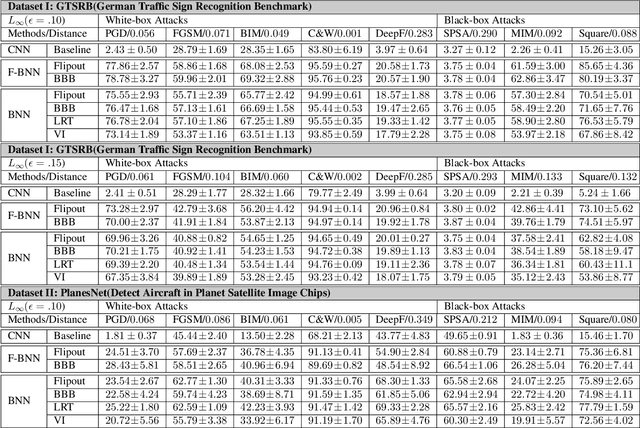Evaluating the Robustness of Bayesian Neural Networks Against Different Types of Attacks
Paper and Code
Jun 17, 2021



To evaluate the robustness gain of Bayesian neural networks on image classification tasks, we perform input perturbations, and adversarial attacks to the state-of-the-art Bayesian neural networks, with a benchmark CNN model as reference. The attacks are selected to simulate signal interference and cyberattacks towards CNN-based machine learning systems. The result shows that a Bayesian neural network achieves significantly higher robustness against adversarial attacks generated against a deterministic neural network model, without adversarial training. The Bayesian posterior can act as the safety precursor of ongoing malicious activities. Furthermore, we show that the stochastic classifier after the deterministic CNN extractor has sufficient robustness enhancement rather than a stochastic feature extractor before the stochastic classifier. This advises on utilizing stochastic layers in building decision-making pipelines within a safety-critical domain.
 Add to Chrome
Add to Chrome Add to Firefox
Add to Firefox Add to Edge
Add to Edge